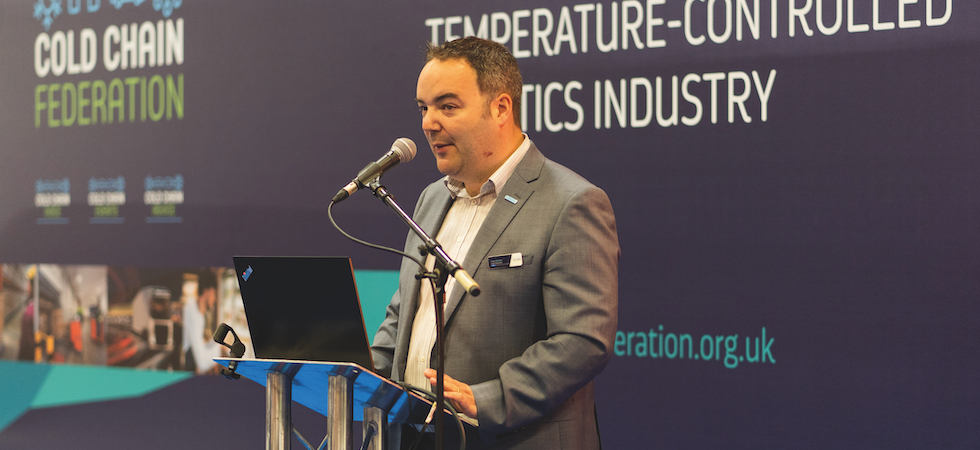The Cold Chain Federation (CCF) has published a report which sets out plans for transitioning away from diesel as the primary power source for refrigeration on vehicles.
CCF estimates there are currently 30,000 refrigerated trailers operated by UK transport businesses and a further 40,000 vans and rigid vehicles which are temperature controlled and will be impacted by the transition.
‘The Journey Towards Emission Free Temperature-controlled Distribution on Road Vehicles’ is the result of 18 months of consultation with cold chain businesses, TRU and trailer manufacturers, refrigeration engineers and academics. The plan sets out four key target milestones:
- Target One: No transport refrigeration units to be sold into the UK market containing refrigerants with a GWP (Global Warming Potential) of more than 300 by 2025
- Target Two: No transport refrigeration units should use refrigerants with a GWP of more than 300 by 2035 (in line with Kigali agreement)
- Target Three: Ambition that no new diesel TRU should be placed on the UK market after 31st December 2029
- Target Four: No vehicle operating on UK roads should be using a diesel powered TRU after 31st December 2039.
CCF’s report stated that government must enable the industry to meet these targets by:
- Providing confidence and a clear deployment strategy for the technologies which will be backed to become widespread in the future to give operators confidence to invest
- Providing a clear investment strategy to facilitate the installation of electric charging for vehicles and temperature-controlled trailers at depots and rest points, including addressing grid connection issues
- Supporting the implementation of the plan with effective regulation to support industry efforts to better understand the number of refrigerated vehicles on UK roads and to maintain, or remove, older trailers from the road
- Supporting the investment in trials or adoption of lower emission technologies through buying incentives such as direct grants on qualifying technology, additional tax incentives or allowances and by ensuring that research funding is allocated to realistic solutions
- Ensuring temperature-controlled operators are taken into account when developing the freight system of the future as outlined in the Transport Decarbonisation Plan.
“Government must play its part”
Shane Brennan, chief executive of CCF, said: “The cold chain is pulling out all the stops to keep food on our shelves in the midst of the industry’s worst crisis in living memory. Despite the exhausting cumulative burden of the driver shortage crisis, disruption from Covid-19 and major challenges related to post-Brexit changes, these businesses are committed to progress towards a net zero future by finding ways as an industry to phase out the use of diesel in vehicle refrigeration entirely. Government must start to play its part too.”
The Federation has presented the plans and proposed government measures to the Department for the Environment, Food and Rural Affairs; the Department for Business, Energy and Industrial Strategy; and the Department for Transport. It is currently awaiting their responses.









